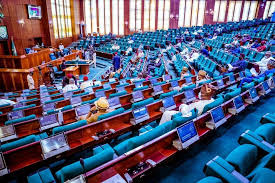A transformative bill that proposes a return to a regional government structure in Nigeria is currently under consideration by the National Assembly.
Expected to be enacted by October 1, 2024, this bill aims to overhaul the nation’s governance model, reverting to a system that grants greater autonomy to Nigeria’s diverse regions.
The draft bill, which has generated considerable discussion on social media, is titled “A Bill for an Act to Substitute the Annexure to Decree 24 of 1999 with a New Governance Model for the Federal Republic of Nigeria.”
If passed, it would become known as the Constitution of the Federal Republic of Nigeria New Governance Model for Nigeria Act 2024.
The bill’s proponents, whose identities are yet to be confirmed, argue that the current 1999 Constitution lacks legitimacy because it was imposed by a military regime without genuine public consent.
They describe the constitution as not “autochthonous,” meaning it did not emerge from the deliberations and consensus of the Nigerian people.
The sponsors emphasize the need for a constitution that reflects the will of the people, proposing that the amendment be subject to a national referendum.
This approach aims to ensure that any changes are directly approved by the Nigerian populace.
The proposed constitution would require any amendments to be validated through a “yes or no” vote in a referendum, reinforcing democratic participation.
The bill acknowledges the origins of the current constitution under Decree 24 of 1999, imposed without public consent, despite the preamble’s claim of “We the people.”
The new governance model advocates for a federal system where regional territories have significant autonomy. Ethnic blocs within states would have the discretion to form provinces, divisions, and districts, managing their affairs independently.
The National Assembly is empowered to remove the 1999 Constitution from Decree 24 and replace it with the new governance model by October 1, 2024. This change would be subject to a national referendum.
Nigeria would be a federation composed of regional territories and a Federal Capital Territory. Each ethnic nationality would have the right to self-determination, establish governmental institutions, and ensure equitable representation in both federal and regional governments.
The bill affirms the unconditional right of every ethnic group in Nigeria to self-determination within delineated territories. It grants these groups the power to participate in forming articles of association for federal government reforms and to establish self-governance structure
Adopting this bill would mark a significant shift in Nigeria’s governance, decentralizing power and enhancing regional autonomy.
This change aims to address issues of representation and inclusivity, reflecting the country’s ethnic diversity more accurately.
The proposed model seeks to empower regions, potentially leading to more localized and effective governance.
The bill’s progress through the National Assembly will be closely observed, with the proposed referendum being a pivotal step.
This vote will determine whether the new governance model aligns with the will of the Nigerian people.
If successful, Nigeria could transition to a more regionally autonomous and collaboratively federal system, setting a precedent for democratic reforms.
.
Do you want to share a story with us? Do you want to advertise with us? Do you need publicity for a product, service, or event? Contact us on WhatsApp +2348183319097 Email: platformtimes@gmail.com
We are committed to impactful investigative journalism for human interest and social justice. Your donation will help us tell more stories. Kindly donate any amount HERE




